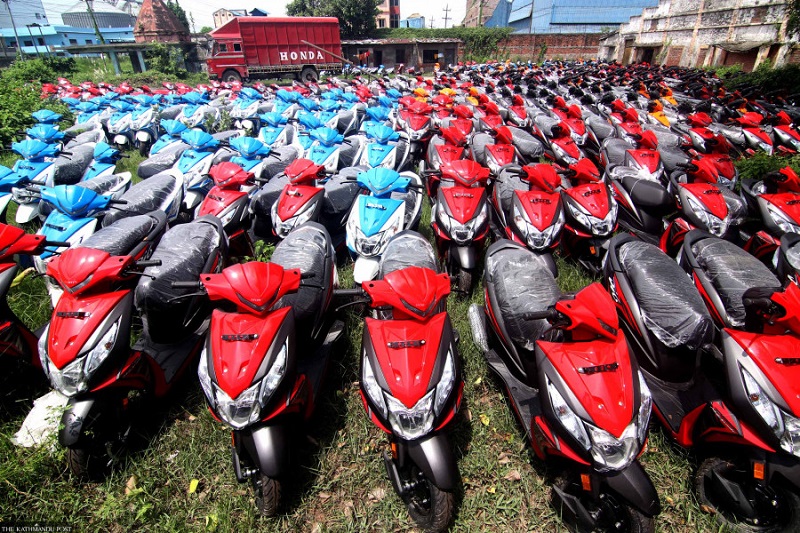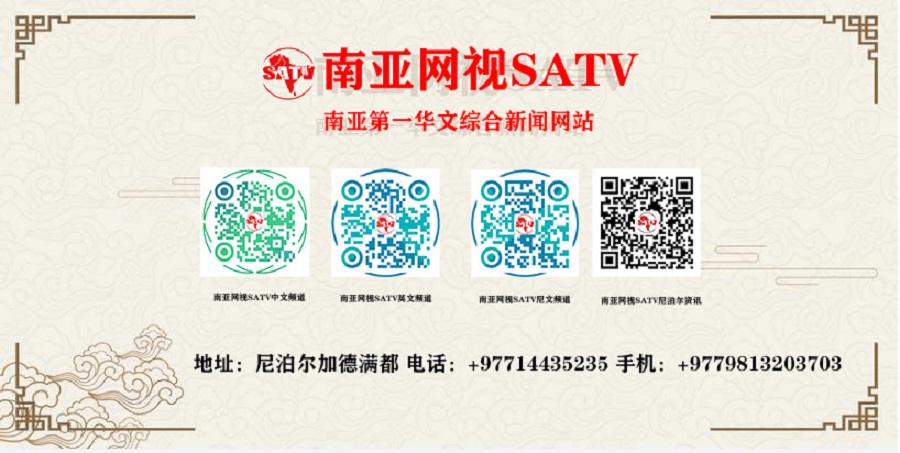
As potential importers have been relying on short-term credit without depositing any cash, the central bank's directive is expected to stem the import of these products. POST FILE PHOTO
With Nepal Rastra Bank moving to discourage imports of 10 types of goods in a bid to conserve declining foreign exchange reserves, opportunist traders have hiked the prices of some of these products and are creating an artificial shortage, consumer rights activists said.
On December 20, the central bank made it mandatory for importers to keep 100 percent margin amount to open a letter of credit (LC) to import the listed goods. As potential importers have been relying on short-term credit without depositing any cash, the central bank's directive is expected to stem the import of these products.
As per Nepal Rastra Bank, traders need to keep 100 percent margin to open a letter of credit to import alcoholic drinks, tobacco, silver, furniture, sugar and foods that contain sweets, glucose, mineral water, energy drinks, cosmetics, shampoos, hair oils and colours, caps, footwear, umbrellas, and construction materials such as bricks, marble, tiles and ceramics, among others.
Motorcycle and scooter importers have to keep 50 percent margin amount, and importers of diesel-powered private automobiles also need to keep 50 percent margin amount compulsorily.
“This decision by the government is a bonanza for opportunist traders to create artificial shortages and raise prices disrupting the supply chain,” said Madhav Timalsina, president of the Consumer Rights Investigation Forum.
According to the Department of Customs, imports increased by 59.55 percent to Rs838.40 billion in the first five months of the current fiscal year (mid-July through mid-December). The central bank statistics show that the country is facing a balance of payments deficit of Rs150.38 billion in the review period against a surplus of Rs110.65 billion in the same period of the previous fiscal year.
Gross foreign exchange reserves decreased by 11.0 percent to Rs1.24 trillion in mid-November 2021 from Rs1.39 trillion in mid-July 2021.
The central bank has decided to discourage the import of these goods considering that they are “not essential”. “But the decision to discourage imports will make it difficult for consumers,” said Timalsina.
"The government has said that traders have to keep 100 percent margin amount to import goods like cosmetics, shampoos, hair oils and footwear, among others. But these goods have become essential for every household,” said Timalsina.
“When goods are restricted, this raises the chances of products being relabelled and spurious goods reaching the market as a result of loose inspection at customs points,” Timalsina told the Post. "Though the government has restricted the import of what it calls non-essential items, many goods in the list have become essential," he said.
"Due to the 100 percent margin amount provision for the import of listed goods, their prices will increase automatically," Timalsina said.
“As the government does not have proper data regarding the inventory, and as market monitoring and inspection is poor, traders have started increasing the prices of goods that they have had in stock for four to six months,” Timalsina said.
"None among the Ministry of Industry, Commerce and Supply; Department of Commerce, Supplies and Consumer Protection; and Department of Customs has figures regarding the quantity of goods held by traders," he said.
"Importers of cosmetics are creating artificial shortages in the market," Timalsina said.
"Since the Department of Commerce, Supplies and Consumer Protection has not been able to monitor and inspect the market effectively or implement a data keeping system, traders have started creating artificial hikes in the goods listed in the import list of restrictions," he said.
"Because of Kathmandu Valley's chaotic public transportation, motorbikes and scooters have also become essential to get around," Timalsina added.
"The move to deter imports of motorbikes and scooters will ultimately hit consumers in the form of price increases," said Subash Acharya, vice-president of Nepal Automobile Dealers Association. He added that the effects of the policy were yet to be seen in the market.
“The provision exhibits the government's lack of long-term vision and lack of coordination between the Finance Ministry and Nepal Rastra Bank as the automobile sector employs 1.5 million persons and accounts for a significant portion of government revenue,” Acharya said. "This decision will have an adverse impact on both jobs and revenue," he added.
"Importing motorbikes and scooters by keeping 50 percent margin amount will ultimately hurt the consumer's pocket due to increased investment costs," Acharya said.
“If we had the ability to import goods by keeping 50 percent margin amount, banks would not be facing a liquidity crunch. The government could not even analyse this simple issue before issuing the provision,” he said.
“We will not be able to import motorbikes and scooters under this provision,” Acharya said.













